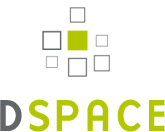Please use this identifier to cite or link to this item:
http://repository.alraziuni.edu.ye/123456789/39| Title: | Nursing Care of the Preeclamptic Patients in Public Hospitals in Sana'a City-Yemen |
| Other Titles: | Fawz Mohammed Abol-Gaith1 , Nabil Ahmed Al-Rabeei2* , Afrah M. Al-Dubhani1& Abdulsalam M. Dallak1 1Nursing Division, Faculty of Medicine and Health Sciences, Sana’a University. 2Department of Community Health and Nutrition, College of Medical Sciences, Al-Razi University. *Corresponding author: Dr. Nabil Al-Rabeei; e.mail: nabil_alrabeei@alraziuni.edu.ye |
| Authors: | Abol-Gaith, Fawz Mohammed Al-Rabeei, Nabil Ahmed Al-Dubhani, Afrah M. Dallak, Abdulsalam M. |
| Keywords: | Nursing care Preeclampsia Preeclamptic patients Sana'a |
| Issue Date: | 1-Dec-2019 |
| Publisher: | Al-Razi University Journal of Medical Sciences |
| Citation: | Nursing Care of the Preeclamptic Patients in Public Hospitals in Sana'a City-Yemen |
| Abstract: | Background: Preeclampsia is a serious public health problem that affects the group of pregnant women. Aim: To assess the nursing care of the preeclamptic patients among nurses in public hospitals in Sana'a City. Methods: A descriptive cross-sectional study was carried out from December 2018 to April 2019. Eighty four of the nurses were participated in this study. A stratified sampling was applied to select the sample size from 4 major public hospitals, the research team collected all data personally by handing out a structured questionnaire. SPSS was used to analyze data. Results : The results of the study showed that (47.6%) of the nurses were in the age 20-25 years. The majority 76.2% had diploma degree and 72.6% have 1-5 years' experience. 72.6% of the nurses did not received training courses about preeclampsia. 42.8% had optimum knowledge on risk factors for developing preeclampsia,(57.1%) had optimum knowledge on serious sign of severe preeclampsia,(32.1%) had optimum information on progresses from mild preeclampsia to severe. (41.7%) of the nurses had optimum knowledge on indication for delivery of preeclamptic mother. (10.7%) of the nurses had optimum knowledge on the signs of HELLP syndrome. (22.6%) of the nurses knew how to monitoring fetal wellbeing of preeclamptic mother. 44% of the nurses had optimum knowledge on plan a diet for preeclamptic patients, (46.4%) had adequate knowledge about the care before administer of MgSO4, (58.3%) had adequate knowledge about the nursing care of severe preeclampsia and (44%) had adequate knowledge about the intrapartum nursing care of preeclamptic patients. Conclusion: We concluded that inadequate knowledge of current management preeclampsia. Increasing knowledge and practice of nursing staff through the courses training and workshop |
| URI: | http://repository.alraziuni.edu.ye/123456789/39 |
| ISSN: | 2616-6143 2708-0870 |
| Appears in Collections: | الأبحاث المنشورة |
Files in This Item:
| File | Description | Size | Format | |
|---|---|---|---|---|
| Nursing_Care_of_the_Preeclamptic_Patients_in_Public_Hospitals_in.pdf | Nursing Care of the Preeclamptic Patients in Public Hospitals in Sana'a City-Yemen | 432.61 kB | Adobe PDF | View/Open |
Items in DSpace are protected by copyright, with all rights reserved, unless otherwise indicated.
